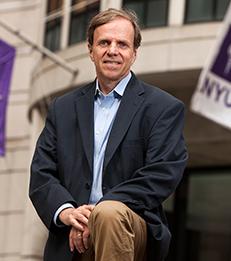Why Business Leaders Need to Stand Up to Protect U.S. Democracy.

By Michael Posner
In today’s hyper-partisan political environment, U.S. business leaders are struggling to decide if and when to speak out on issues of the day. Our society is deeply divided on abortion, guns, immigration, LGBTQ+ rights, the Middle East conflict, and views on diversity and inclusion. Corporate CEOs are loathe to challenge politicians and a public ready to punish companies in retribution for their public statements. On the other hand, these leaders face increasing pressure to speak out—from their employees, customers, and the communities where they operate. Top executives have their own values and beliefs, of course, and these, too, may feed a desire to join the political fray. While it is understandable that most corporate leaders have declined to engage publicly on these topics, there is one issue on which I believe they need to take a stand. It is the sanctity of our elections and defense of our democratic system.
U.S.-based businesses have been the beneficiaries of democratic society where, in broad terms, the rule of law is respected, courts resolve disputes fairly, and there is trust in the legitimacy of elected officials. When this democratic edifice breaks down, businesses suffer. This is not about who gets elected but rather whether the system that elects them is fair, accessible, and inclusive. It’s about whether our electoral choices are based on real facts rather than concocted ones. And it is about whether there is an orderly transition of power once the results of an election become clear. As these basic tenets of democracy are coming under attack, business leaders need to speak out. And yet to date, few have been willing to do so.
There are three types of threats to our elections and democratic order that deserve special attention. The first is voter suppression laws, usually aimed at limiting the participation of poor and minority voters. According to the Brennan Center for Justice, “The restrictive laws passed in the last 10 years target every aspect of voting, including making voter registration more difficult, curtailing early voting opportunities, closing polling places, and limiting voter assistance.”
Read the full Forbes article.
___
Michael Posner is the Jerome Kohlberg Professor of Ethics and Finance, Professor of Business and Society and Director of the NYU Stern Center for Business and Human Rights.
